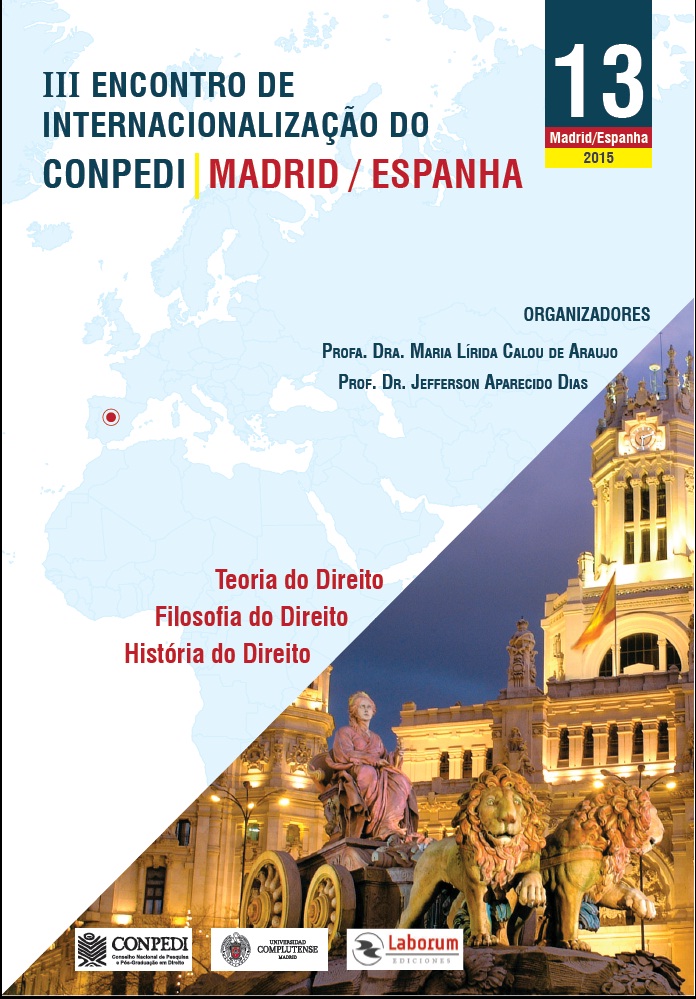A Escola do Constructivismo Lógico-Semântico e os Limites da Interpretação: Uma (Re) Conceituação do Tributo no Brasil
Conteúdo do artigo principal
Resumo
Downloads
Detalhes do artigo
Autores que publicam nesta revista concordam com os seguintes termos:
O(s) autor(es) autoriza(m) a publicação do texto na da revista;
O(s) autor(es) garantem que a contribuição é original e inédita e que não está em processo de avaliação em outra(s) revista(s);
A revista não se responsabiliza pelas opiniões, idéias e conceitos emitidos nos textos, por serem de inteira responsabilidade de seu(s) autor(es);
É reservado aos editores o direito de proceder a ajustes textuais e de adequação às normas da publicação.
Autores mantém os direitos autorais e concedem à revista o direito de primeira publicação, com o trabalho simultaneamente licenciado sob a Licença Creative Commons Attribution que permite o compartilhamento do trabalho com reconhecimento da autoria e publicação inicial nesta revista.
Autores têm autorização para assumir contratos adicionais separadamente, para distribuição não-exclusiva da versão do trabalho publicada nesta revista (ex.: publicar em repositório institucional ou como capítulo de livro), com reconhecimento de autoria e publicação inicial nesta revista.
Autores têm permissão e são estimulados a publicar e distribuir seu trabalho online (ex.: em repositórios institucionais ou na sua página pessoal) a qualquer ponto antes ou durante o processo editorial, já que isso pode gerar alterações produtivas, bem como aumentar o impacto e a citação do trabalho publicado (Veja O Efeito do Acesso Livre) emhttp://opcit.eprints.org/oacitation-biblio.html
Referências
ADAME MARTÍNEZ, Francisco. Tributos municipales sobre residuos en derecho comparado. In: SERRANO ANTÓN, Fernando (Coord.). Tributación ambiental y haciendas locales. Navarra: Aranzadi, 2011, p. 1025-1044.BAUMAN, Zygmunt. Modernidade líquida. Rio de Janeiro: Jorge Zahar, 2001.
BECK, Ulrich. A reinvenção da política: rumo a uma teoria da modernização reflexiva. In: BECK, Ulrich; GIDDENS, Anthony; LASH, Scott. Modernização Reflexiva: política, tradição e estética na ordem social moderna. São Paulo: UNESP, 1997, p. 11-68.
BOECHAT, Cláudio Bruzzi; CAMPOS, Paulo Március Silva; PEREIRA, André Luiz; SILVA, Jersone Tasso Moreira; TADEU, Hugo Ferreira Braga. Logística reversa e sustentabilidade. São Paulo: Cengage Learning, 2013.
BOWERSON, Donald J., CLOSS, Davis J. Logística empresarial. São Paulo: Atlas, 2001.
CARVALHO, Paulo de Barros. Direito Tributário: fundamentos jurídicos da incidência. São Paulo: Saraiva, 2012.
______. Direito Tributário, linguagem e método. São Paulo: Noeses, 2009.
CAVALCANTE, Denise Lucena. Instrumentos fiscais na efetivação da Política Nacional de Resíduos Sólidos: do poluidor-pagador ao protetor-recebedor. In: CAVALCANTE, Denise Lucena (Coord.).
Tributação ambiental: reflexos na Política Nacional de Resíduos Sólidos. Curitiba: CRV, 2014, p. 141-158.
COHEN, Miriam Alfie; SÁNCHEZ, Adrián de Garay. Risk society and the precautionary principle. In: BENIDICKSON, Jamie et al. Environmental law and sustainability after Rio. UK/USA: Edward Elgar Publishing Limited, 2011, p. 84-100.
GEORGESCU-ROEGEN, Nicholas. O decrescimento: entropia, ecologia, economia. Trad. Maria José Perillo Isaac. São Paulo: SENAC, 2012.
GUIVANT, Julia S. A teoria da sociedade de risco de Ulrich Beck: entre o diagnóstico e a profecia. In: Revista Estudos Sociedade e Agricultura. Vol. 16. Abr, 2001, p.95-112. Disponível em:
LEITE, José Rubens Morato. Estado de Direito do Ambiente: uma difícil tarefa. In: Inovações em Direito Ambiental. LEITE, José Rubens Morato (org.). Florianópolis: Fundação Boiteaux, 2000.
LEITE, Paulo Roberto. Logística reversa – meio ambiente e competitividade. São Paulo: Pearson Prentice-Hall, 2006.
MAIMON, Dália. Eco-estratégia nas empresas brasileiras: realidade ou discurso. In: Revista de Administração de Empresas. Vol. 34, n. 4, Jul/Ago, 1994, p. 119-130. Disponível em:
MORIN, Edgar. Os sete saberes necessários à educação. São Paulo: Cortez- UNESCO, 2011.
NOLTE, Manfred. Fiscalidad y desarrollo humano sostenible. In: URIA GUTIÉRREZ, AITANA. De la economía verde a las sociedades verdes: reflexiones para el futuro que queremos. Madrid: Catarata, 2013, p. 102-119.
ROSEMBUJ, Tulio. El impuesto ambiental. Barcelona: El fisco, 2006.
SOLER, Fabricio Dourado; MACHADO FILHO, José Valverde; LEMOS, Patrícia Faga Iglecias. Acordos setoriais, regulamentos e termos de compromisso. In: JARDIM, Arnaldo; YOSHIDA, Consuelo; MACHADO FILHO, José Valverde. Política nacional, gestão e gerenciamento de resíduos sólidos. São Paulo: Manole, 2012,p. 79-101.
TANURO, Daniel. El imposible capitalismo verde: del vuelco climático capitalista a la alternativa ecosocialista. Madrid: La Oveja Roja, 2011.





